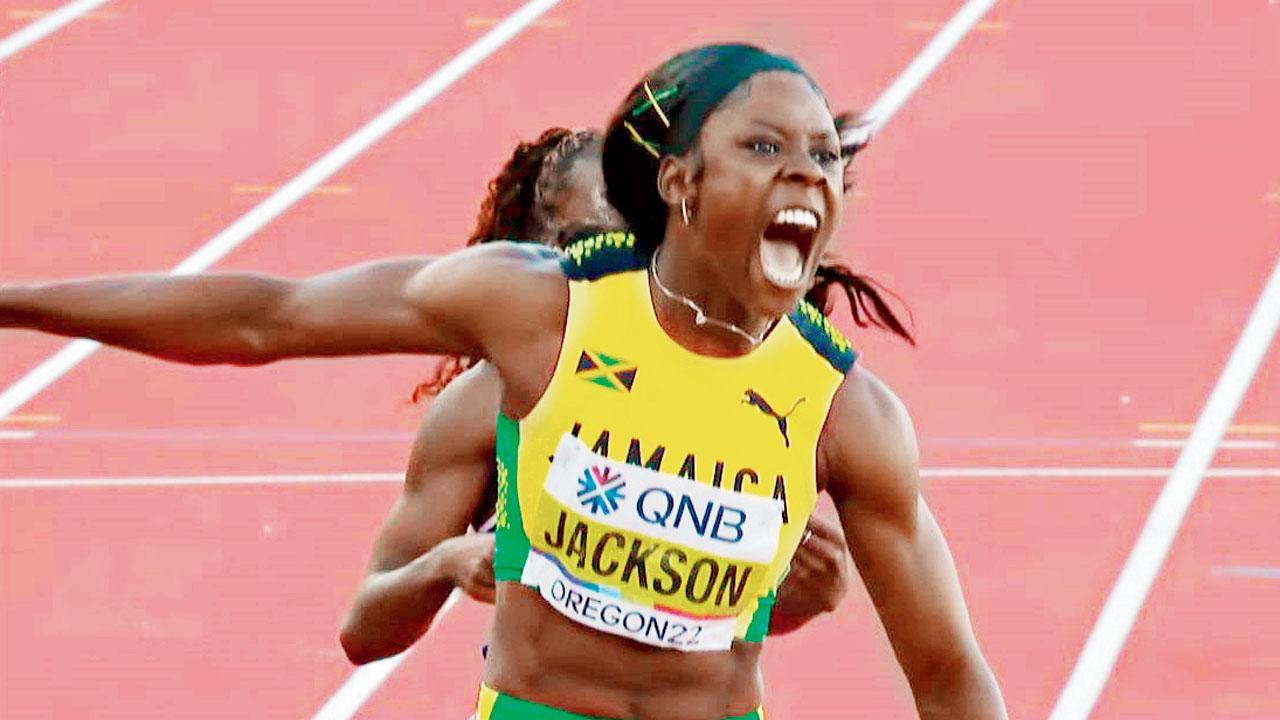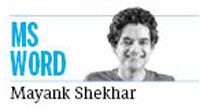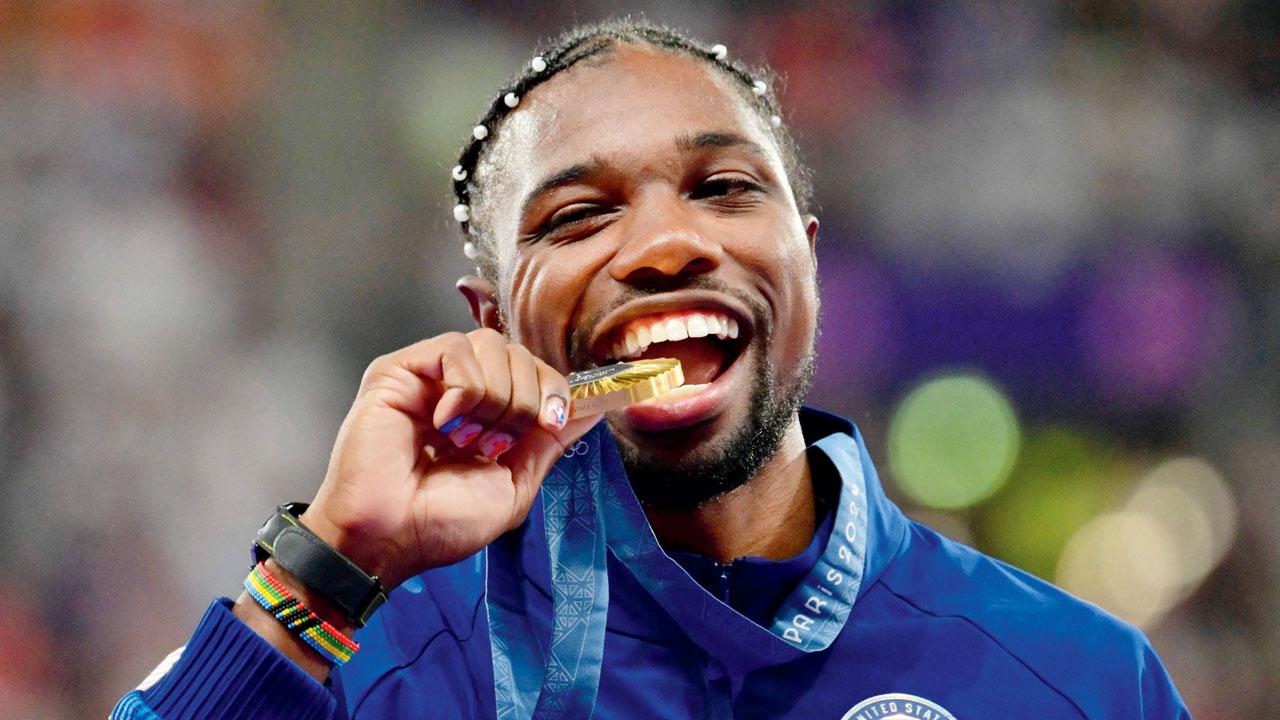How the Netflix doc series Sprint gets you into spirit of the track, at Olympics, that we experience only once in four years

A still from the Netflix documentary series Sprint
 Ideally, society should want everybody’s professional life to be equivalent to the racing track in athletics, no?
Ideally, society should want everybody’s professional life to be equivalent to the racing track in athletics, no?
ADVERTISEMENT
One, everybody, unless physically challenged, runs. This is the most level-playing field. You need legs to stride, and the heart pounding fine.
You also race on your own track. Meaning, minding your own business. Instead of playing creepy games to trip others over, to get ahead.
Which is often worshipped as politicking—that blokes in other fields, politics only being one of them, shamelessly engage in, and often get rewarded for.
Finally: you are what you clock, on any given day.
As columnist Manu Joseph puts it most pithily/perfectly, “If sport was [instead] a subjective field, it would be filled with sprint lovers trying to make a career out of running 100 metres in 20 seconds, networking every night to be voted the best!” It’s not like you can keep networkers apart, still.
 Gold medallist Noah Lyles celebrates during the victory ceremony for the men’s 100m athletics event during the Paris 2024 Olympic Games. PIC/AFP
Gold medallist Noah Lyles celebrates during the victory ceremony for the men’s 100m athletics event during the Paris 2024 Olympic Games. PIC/AFP
Just observe the number of sedentary politicians, business people, even their kids, who corner sporting events—flashing their faces, through foundations, federations, throwing their weight around, given money and power, trying to catch reflected glory from sport; Olympics, included.
Left to them, these influential networkers wouldn’t be able to lift a finger together, if that was a team sport.
That said, it’s not like some aren’t simply born with unmatched genetic advantage in athletics/sports. Take the American Noah Lyles, 27, from Gainesville, Florida.
About his family, Noah says in the Netflix documentary series, Sprint, “Being an Olympian is like holding driving licence, or having a child.” Only but natural.
Also, it’s hardly a racist thing to see and say that black people principally dominate the racing track. Whether they’re from the US, a nation of migrants, or the tiny Caribbean island of Jamaica, obviously different from Jamaica, in New York City—that produces champions after champions at sprinting, their “national sport”.
“130 gold medals [so far],” as Kingston, Jamaica’s top sprinting coach, Stephen Francis, speaks of his own performance, over the years, in Sprint.
Which is a six-part, full-access BTS series, co-produced by World Athletics, global governing body for track & field—chronicling seven top athletes, including Jamaica’s Shericka Jackson.
Culminating with the 2023 World Athletics Championship in Budapest, “Paris of the East”. That’s of course the year before the biggest event, ie the Olympics, in the real Paris, of France. This is unsurprisingly exciting, exhilarating stuff, as most sports docs tend to be.
To the extent that I wonder why anybody even bothers mounting fictionalised sports movies/biopics, unless it’s a period film, where actual footage is unavailable.
Else, what plays out on a sporting arena is all the drama you need. Story is complete. Hero’s at the centre. Circumstances are villains.
Ambition’s the bitch, sometimes. Wherein, say, Shericka in Sprint, convincingly wins 200 metres at the Worlds, but is still unhappy, because she doesn’t break Florence Joyner’s 21.34 seconds record, held since 1988!
The hero of Sprint is pretty much the brash, verbose Noah. To be fair, he’s got the balls to back up his big talk.
Quite mischievous/‘khurafati’, he mocks fellow Americans playing off Americans at NBA basketball, and calling it the world championship! He invites trolls, pompously posting his target for 100 and 200 metres at the Worlds, on social media: 9.65 and 19.10 seconds.
You enjoy Noah’s youthful ambition, bindaas energy, as much as the quiet, gentlemanly spirit of Roger Federer in the recent doc, Twelve Final Days, on Prime Video, as the tennis star melancholically exits the sport after 24 years.
Noah’s life starts and ends in 10/20 seconds. He’s a 200 metres specialist, who’s brought his A-game into 100 metres. Acing the ‘double’ being the ultimate test for “fastest human on earth”. He wins both at the Worlds.
Many Indians, even if they weren’t into athletics, would’ve stayed up to watch the Olympics 100 metres, past midnight, from Paris. I’m pretty sure you didn’t catch Noah at the Worlds.
That’s what Olympics do—turn us towards 32 sports; most that we don’t religiously follow. Making global stars, across 329 events, 48 disciplines—now, with separate live feeds on an OTT possible. But only once in four years.
Should make us wonder if there’s a case to be made for Olympics to be held more regularly. Would it dilute the reputation/craze?
It’ll certainly get more audiences to frequently applaud a range of winners—beyond their own nationalities, that they, usually then, claim as personal victories: “We won!”
Oh, no, you watched. They won. It’s as much fun to watch sports for sports’ sake; no? Even for Indians, Neeraj Chopra will matter more, if we commonly consumed his javelin throws.
As we speak, all eyes are on what Noah does at 200 metres. Noah won 100 metres gold from Jamaican Kishane Thompson, by 5,000th of a second, where everybody on the track clocked under 10 seconds! I suppose we’ll get the backstory of this in the next season of Sprint.
For now, I’m glad that mundane professional lives are more a positive-sum game. You don’t have to be only the Noah of law/accountancy/engineering for the work to matter, or not at all. The winner doesn’t take all, as with racing athletes.
Much relief!
Mayank Shekhar attempts to make sense of mass culture. He tweets @mayankw14
Send your feedback to mailbag@mid-day.com
The views expressed in this column are the individual’s and don’t represent those of the paper.
 Subscribe today by clicking the link and stay updated with the latest news!" Click here!
Subscribe today by clicking the link and stay updated with the latest news!" Click here!







